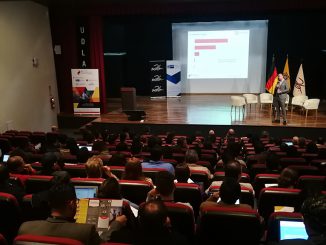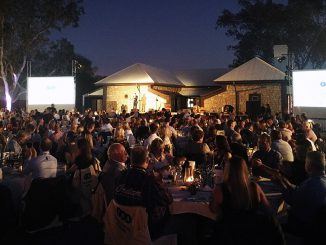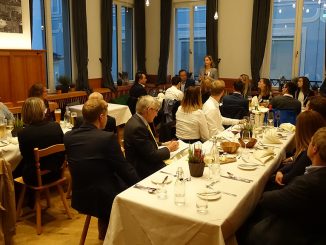
Recent years have experienced a significant growth of High-Net-Worth Individuals (HNWI) and Ultra-High-Net-Worth Individuals (UHNWI). First-mentioned are believed to possess investable assets of at least US$ 3 million, while the latter ones about US$ 30 million.
Many of those people originate from emerging markets, which are traditionally characterized by high economic growth rates. For example, in China alone it is estimated that the absolute number of UHNWIs increased from 7,000 up to 116,000 individuals between 2006 and 2016.
The result is that those fortunes do not only have to be managed, but must also be future-proof for the next generations. Against the background of the last global financial crisis, traditional wealth management firms have created severe mistrust against themselves. At the same time, the demand for customized family office solutions has risen, which has led to an increase in the establishment of Single Family Offices (SFOs) and Multi-Family Offices (MFOs). An SFO can, simply put, be understood as an entity a family creates to manage its financial affairs, and which often also provides (convenience) services for one family.
Due to the rather clandestine nature of family offices, very little is known about what their owning families consider success factors for their offices, especially in emerging markets. A recent research project at MBS’s Courage Center of Global Family Firms analyzed the situation through expert interviews, consisting of family office principals, CEOs, family advisors, consultants, and bank officials in Latin America, Asia, and the Middle East with the goal of shedding light on this underexplored territory.
The 6 key findings are summarized in the following.
Different Markets – Similar Tasks
Interestingly, regardless of the market the individual family office is located in, the sample broadly agreed on the general operative tasks that must be fulfilled. Thereby, joint financial wealth management within the family circle remains top priority, and the smallest common denominator of establishing and running a family office.
Remarkably, topics such as family governance, succession planning, and implementation become increasingly important to affected families across all analyzed markets. According to prior research, philanthropic engagement of family offices is believed to play a more important role in the future with the next generation urging into the operations of their families’ offices.
In selected cases of the sample, where the Next Gen was particularly interested in philanthropic projects, these projects were supported by the FO, but operationally run by the Next Gen members through foundations that were set up to become independent ventures over time. As one Next Gen member put it, “We started doing charity things and did it through the office. Now that I am heading our professional philanthropy, the office supports it, but it is essentially run by me like a separate company with goals, strategies, and KPIs”.
Generally, the study indicates that the degree of importance of each family office task needs to be evaluated against the position the family is in on their respective life cycles. Harmony within the family nucleus is believed to be the springboard for successful operational performance across all families studied, but depending on the age (as in 1st, 2nd, 3rd etc. generation) of the family, and the office, priorities between the tasks might vary.
Challenges Must be Addressed With Shared Values
In emerging markets – whether it is Asia, Latin America, or the Middle East – family offices face a diverse set of challenges. However, apart from local peculiarities regarding culture and some macro-economic influencers originating from continuous political and legal instabilities, families consider the unity amongst their members as key challenge that decides over the successful and long-term operation of any family office.
Thereby, the interview participants underlined the importance of clear and aligned visions and goals of all involved family members, discussed, agreed, and communicated in a way that respects all opinions, and brings them to an objective and trackable strategy for implementation through the family office.
This includes a self-imposed ethical code of conduct of the specific family – which can vary significantly from family to family, based on legacy, origin, belief, etc., but is important to be clear for all members who are principals in the respective office. “’The who are we and who do we want to be in the future as family and therefore as office?’ question is essential, and the starting point of everything,” says one interview partner. From an operational standpoint, it is seen as crucial to have a flexible mindset, and to not back off from the internationalization of investments and operations to diversify risk. Investments beyond the emerging market “home turf” bring the advantage of gaining independence from local macro-economic factors, political instability, and market uncertainties.
Hence, rapidly building international networks, for co-investment as well as for gathering trusted opinions in foreign markets, beyond the “home market” is seen as a key requirement for new family offices from emerging markets. Once the family has agreed upon the FO’s directions, the family office’s daily task would be to control costs and risks in executing those directions, especially on the home turf that often still makes most of the money from operational businesses. “In markets where you can earn a lot, because it’s an emerging market, also a lot can go wrong,” says another interviewee. “That’s why keeping your control is core, and taking your eyes off the ball at home while you start investing internationally can be a danger. Our FO has to look into both directions simultaneously.”
Further, it became clear that the solution approaches of the interviewees are similar, but the degree of standardization across the interviewees appears to be rather low and highly depending on the individual family’s setting, and the market they are from. “Good control over the assets you own can mean something very different between, for example, a Latin American business, and a business in the UAE,” says an interviewed expert.
Professional Networks – Not If but How
Referring to the importance of networks for family offices within a business context, the study revealed interesting results and unveiled potential pitfalls. Astonishingly, especially in Latin America networks are used to exchange non-financial information such as experiences, best practices, or advice regarding family matters, rather than to only create deal flow. That non-financial information is valued especially if networks operate in the same cultural sphere.
The shared information may serve as a bottle opener for change, and may enhance creativity and productivity in both the family office and associated businesses. On the other hand, it was highlighted that the establishment of networks is rather difficult and time-consuming due to high levels of trust required in this delicate environment. Likewise, the participation in networking events comes at the cost of privacy of the affluent, which is not to be underestimated. “The best hire that you can make for the office is someone who comes with a global, trusted network,” says an FO principal.
Furthermore, the amount of invitations for such events, coming from large global banks, wealth management firms, etc. leads to an immense accumulation of ideas, theories, and alleged best practice cases, which rather distract families from their individual scenarios, requirements, and implementation/execution of the tasks at hand.
Moreover, voices were being raised that the expectations towards networking events are generally seen too romantically, and often lead to unrealistic expectations, disregarding commercial competition amongst the participating members of those circles. Consequently, the degree and area of assistance of networks depend on the careful management and individual preferences of the particular family.
In accessing global investment opportunities, especially to diversify risk and gain access to markets where wealth can be protected rather than grown exponentially – which is mostly done in the home markets of these FOs –, the key challenges mentioned were: to get into the right international circles, to find trustworthy local partners with aligned values, to maintain constant communication and deep relationships with the international partners, and to not be “seen and used as a less sophisticated global investor from a Banana Republic,” as one interviewee put it in rather drastic terms, “but to be able to play on the global world of professional investments, and become better every year, without knowing all the tricks from the outset”.
Emerging vs. Developed Markets – The Unidentical Twins
Undoubtedly, family offices in developed markets such as Europe or North America have a significantly longer history, and often represent the so-called money aristocracy. Therefore, it stands to reason that the discrepancies between emerging market family offices and their long-established counterparts are significant.
Far from it! Naturally, the expert interviews revealed advances of family offices in developed markets, which is considered to be due to the time advantage in establishing adequate structures. Additionally, family offices from the sample complain about the major pain of finding adequate talent who understands the local culture, but grew up with “Western work ethics”, which is generally regarded as a quality criterion.
Furthermore, the study revealed significant higher personal security expenditures for affluent families, especially in Latin America. However, during the research it was striking that the main approach of running a family office and the underlying topics of management seem to conform, regardless of their particular location. In fact, the decisive powers that define successful family office management such as the dealing of inner-familiar conflicts, service portfolios, and the increasing global orientation remain the same.
The Ambiguous Role of the Next Generation
In contrast to some recent secondary research sources, the present sample shows that in their particular cases, the upcoming generation is generally not involved in the operations of the family office.
However, the roles are as diverse as the various families themselves. In some cases, the youngsters enjoyed initial training within the facility to familiarize themselves with the family business environment, in other cases they are allowed and invited to attend family reunions without possessing voting rights, or underlying strict obligations.
Moreover, the family office generally functions as an intermediary to keep the family members connected, and to synchronize important services that need to be pooled together. An example for this would be insurances, or tax-related services. Also, the degree of family unity decides about how far the services are jointly used here.
Furthermore, the family office may play the role of the facilitator of new ventures the younger generation would like to establish. The institution may assist in providing office space, streamlining business plans, or even running the “grandfather VC Fund” that promotes entrepreneurial activities of the grandchildren in one specific case, and assures that well prepared time can be arranged for the grandfather to mentor the “small ones” on their business ideas.
Overall, keeping operational distance to the family office may be beneficial due to the intended objective, neutral nature of the institution. However, proximity and involvement may enhance the core resource of identification of the next generation with family business matters, and trust building amongst all involved players for long-term survival of the system. When new FOs are set up, the next generation members may have an important role to play, as “it is no longer for us, but for the life of our children to create this office,” as one principal in his late 50s mentioned.
The Universal Recipe for Success – a Utopian Fallacy
The idea of generating a universal list of specific success factors for family offices, which then can be ranked consecutively according to importance, is probably highly desired, and well-meant.
However, the analysis of the expert interviews already showed that the success of a family office depends on various prerequisites and influencers from the family and business side, which build the foundation for adequate task processing of the family office later. Those individually distinct factors represent a complex intertwining rather than a chronological checklist, which ideally creates symbiotic and synergetic effects. Building a new FO, especially in emerging markets, will therefore always have to be a custom-made solution.
Thereby, a strong family core, which consists of highly-aligned visions, strategies, and goals, appears to be the fertile soil and most important element for long-term success. The crux is to synchronize the direction of the family office with the individual needs of the involved family members while separating family and business matters on a day-to-day basis. The family office may function as a servant-hearted, objective stabilizer and intermediary between the involved parties. Thereby, the joint financial wealth management of the respective family still represents the smallest common denominator, and justifies the consideration of a family office as a customized service provider in the first place.
If families perceive the management of their family office as a tailor-made and continuously evolving process of “let’s discuss where we are really heading, in a repeating manner to steer our office well” rather than a once-in-a-lifetime project of “let’s set up a world class office in 6 months that will then run by itself”, the chances are high that these families operate FOs that are sustainably successful, and persist over generations.
After all, especially families in emerging markets have become so successful because they absolutely knew what they stood for, and how they would want to conduct business and invest: the newly rising family office in emerging markets should keep that thought as beacon and thoroughly think through who they want to be, why, and how they will work as they start professionalizing for long-term success, and reaching out beyond their home turf.












